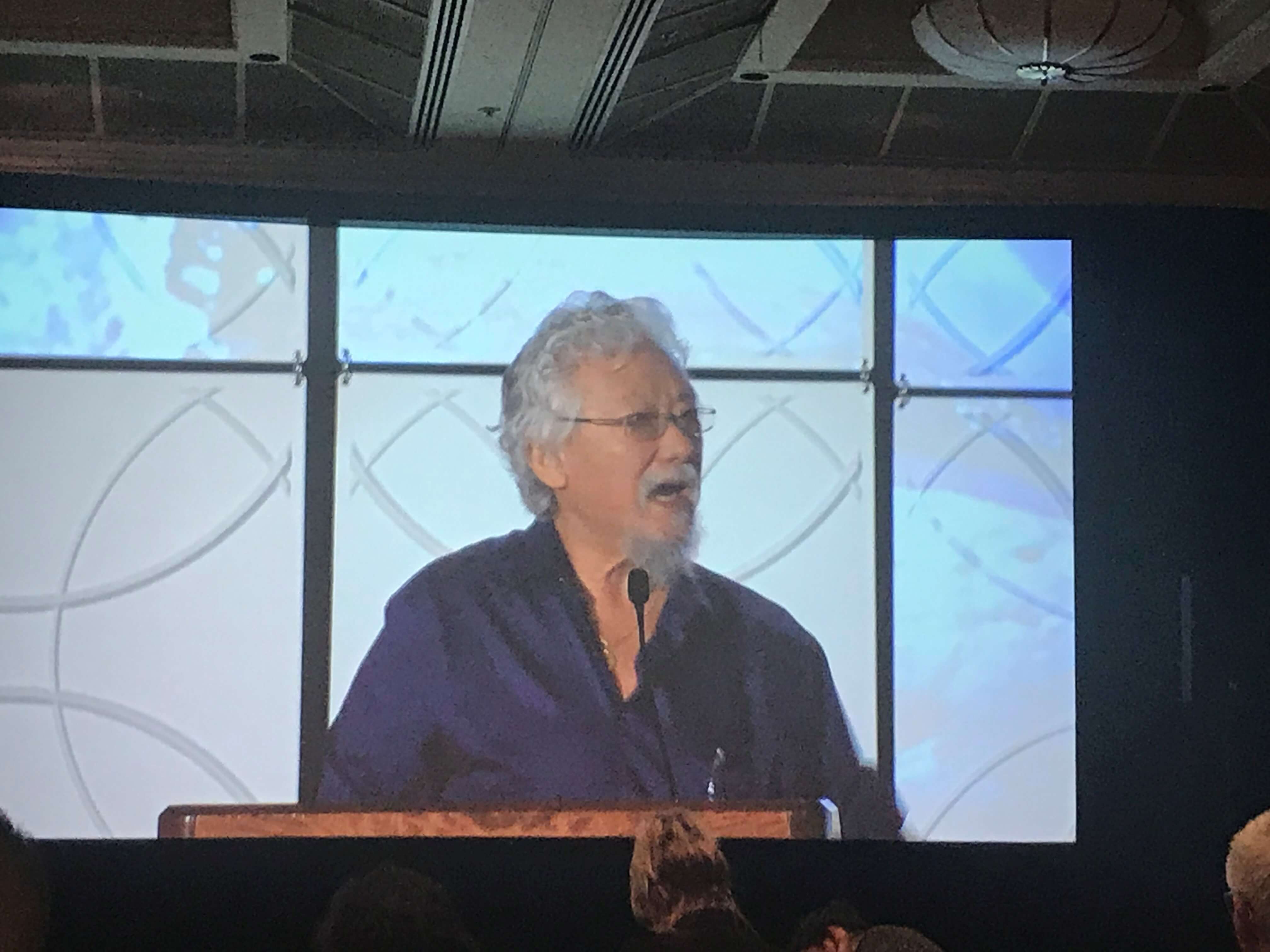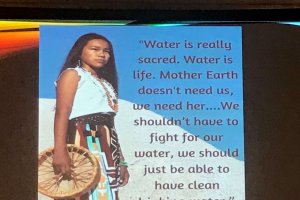Water Management as a Tool for Reconciliation

David Suzuki was the keynote speaker at the recent Assembly of First Nations Symposium in Vancouver that focused on the theme of “Reconciliation through Sustainable Water Management”.
The Assembly of First Nations held the National Water Symposium and Trade Show in Vancouver February 6-8, 2018, where First Nations delegates, industry, government, academia and community groups gathered from across the country. The Symposium’s focus was on “Reconciliation Through Sustainable Water Management”. The Symposium was the beginning of a dialogue to discuss First Nations across Canada, the repeal of the Safe Water Drinking Act and to gather input of what a re-envisioned engagement process for review of the current act would look like.
After a welcome to the traditional territory by the Musqueam, Squamish and Tseil-Waututh, Dr. David Suzuki presented his introductory keynote: Setting the Bottom Line in the Anthropocene. He spoke of sustainability, the importance of understanding our history and the respect each one of us must pay to our elders in order to understand the importance of living a balanced life. He urged attendees to rethink and to understand what real wealth is all about and the need for a new paradigm going forward.
The three-day Symposium provided examples and case studies of what the implementation of Canada’s commitment to the United Nations Declaration on the Rights of Indigenous Peoples and international law as a framework for Reconciliation looks like in regards to co-development of the federal drinking water legislation. The need for collaboration and partnership for legislation, co-governance, First Nations right and title, water management and on-the-ground work including training methods and climate change adaptation were showcased throughout the Symposium.
Other legal tools including Truth and Reconciliation Calls to Action implementation and emerging case law on water protection were provided along with the new standards that are available for Indigenous peoples describing their own laws respecting water and potential opportunities to elevate Indigenous laws, knowledge systems, practices, protocols, customs and ways of being and relating to water for collaborative partnerships and a truly equal and respected seat at the decision-making table.
Workshops and discussions throughout the three days included national and regional updates on water initiatives, innovative technology to make safe drinking water on reserves a reality, collaborative water management regimes, and policy development through water strategies examples. On-the-ground projects provided examples of partnership and collaboration to focus on Indigenous peoples’ relationship with water, safe drinking water needs, and capacity development and training. See the full agenda and speakers for the 2018 National Water Symposium here.
The National Water Symposium provided attendees with examples, tools and opportunities for building collaborative relationships between Indigenous and non-Indigenous peoples and programs to be able to move towards Reconciliation through safe drinking water for all.
Raegan Mallinson is the Water Stewardship Lead for Living Lakes Canada. She can be contacted at raegan@livinglakescanada.ca.




